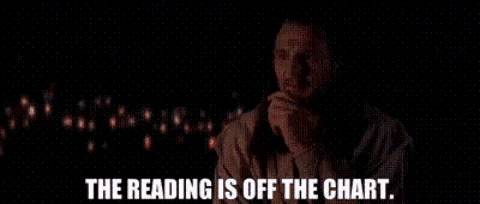



EPISTEMOLOGY
“One of the central concerns of philosophy is to investigate how we know what we know, if there is such a thing as certain knowledge, and, if so, how it is attained.
This is a topic of concern to the Tantra as well, and it is explored in depth by the scholar-sages Utpala Deva and Abhinava Gupta. The difficult and abstruse nature of these discussions invite us to focus on a simpler formulation offered by the second author in his Essence of the Tantras.
There Abhinava tells us that the process of creative contemplation or holistic meditative inquiry (bhāvanā-krama) that leads to experiential knowing of reality is based on these three supports:
❖ sound and careful reflection on your experience (sat-tarka)
❖ the guidance of a great teacher (sad-guru) who is skilled in meditative enquiry and has attained its fruit
❖ the wisdom of the scriptures (sad-āgama)
When these three come together in agreement, Abhinava suggests, we know we have arrived at truth.
One or two of them is insufficient for certainty. In fact, allowing ourselves to abide in uncertainty about anything not supported by all three keeps us open and in a process of learning that closes down if we prematurely decide that we know. Usually in Indian philosophy, the first two valid means of knowledge that are argued for are direct perception and valid inference; here they are combined into sat-tarka, which means the process of drawing sound conclusions based on one’s experience.
In logic (both Western and Indian), a conclusion is “sound” when the premises are true and the structure of thought leading to the conclusion is valid.
To give a slightly modified version of the standard Indian example of a logical argument:
Premise 1: Where there is smoke, there is fire (axiom based on the aggregate of one’s experiences).
Premise 2: There is smoke on the mountain over there (direct observation).
Conclusion: Therefore, there is fire on the mountain.
The argument is called valid structurally because if the premises are true, the conclusion must also be true.
But it is only sound (= correct) if the premises are in fact true. And this particular argument is an example of inference because there is no way to be one hundred per cent sure that there is always fire whenever and wherever there is smoke.
The standard argument in the Indian system of logic is not deduction, which seeks to establish irrefutable certainty, but inference. Unlike in Western philosophy, in the Indian system you never decide that you know for sure, and so you never completely close yourself to unguessed possibilities.
Thus the sense of wonder and openness that is the foundation of all philosophy is maintained. The problem of direct experience as a means of knowledge is that people often draw conclusions based on their experience that are logically invalid. They don’t realize they are doing so because their assumptions and the process by which they draw their conclusions usually go unexamined.
Even more basically, they are often unable to separate their experience from their interpretation.
People can get ruffled when their interpretation of their experience is questioned, saying, “But that’s my experience!”
In fact, anything you can say in words about your experience is an interpretation, not the experience itself. On the path of inquiry into truth, we never devalue or dispense with reflection on our personal experience (note that Abhinava mentions it first), yet since we cannot be one hundred per cent certain about the conclusions we draw or how universally applicable they are, we soften our iron grip on our apparently safe and comfortable sense of certainty and seek to corroborate it with trusted authorities: the teacher and sacred scripture.
To some Westerners, having the spiritual teacher and scripture as the other two legs of the tripod seems redundant. But this system of checks and balances is well worked out.
Scripture exists as a representative document of a whole community; because even if a given scripture was written by just one person, it is transmitted (copied and recopied) for centuries if and only if some of its contents are effective for a wider group of people. As a document of collective wisdom perpetuated by community, scripture protects you from an aberrant teacher who preaches his own idiosyncratic experience as if it were universal, thereby potentially leading you astray. Of course, for this setup to work, you must read a scripture with your own judgment, not solely on the basis of the teacher’s interpretation of it.
On the other hand, though scriptures are presumed to have been written by an awakened master, a healthy skepticism is maintained by requiring their wisdom to be corroborated by the other two sources of knowledge.
Further, the requirement of the living teacher means that you are protected from an off-the-wall interpretation of scripture you arrived at in your own head. Such an interpretation might make sense to you, might even feel good, but is seen by the teacher with clear long-term view to be one that will eventually take you off track.
Such a teacher will rarely say, “You’re wrong,” but will more likely challenge you to contemplate deeper, beyond your conditioned mind.
This system of double corroboration for valid knowledge allows us to come up with seeds of wisdom that we can count on and build a spiritual life on. But the process is not completed until these seeds come to life as living, vibrating wisdom within us.
That is, in the Tantra, we seek not just to know wisdom but to fully embody it. The evidence that you have done so is that you no longer need the external form of the teaching (the words or concepts); it has simply blossomed into living experience, unsupported by any reminders.
When this happens, then no matter how beautiful the words of the teaching are, they seem to be flat or pale or inadequate in comparison with the actual experience.

